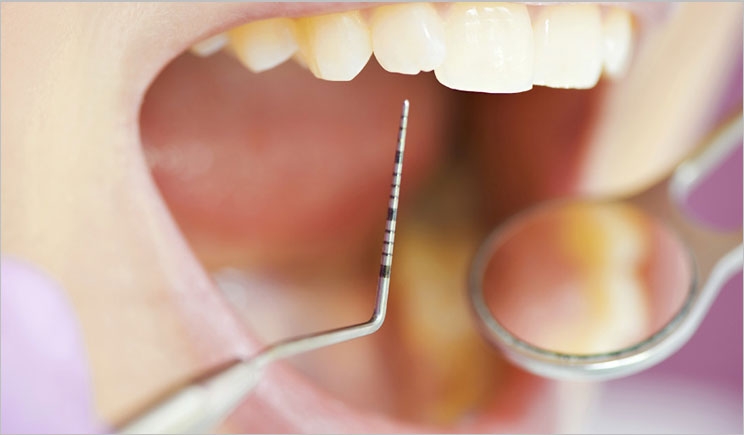
There may be another reason for men to treat gum disease.
Treating gum disease lowered symptoms of prostate inflammation, according to researchers from Case Western Reserve University School of Dental Medicine and the Department of Urology and Pathology at University Hospitals Case Medical Center.
Earlier studies have demonstrated a connection between gum disease and prostatitis, which is a disease that inflames the gland that produces semen. When this gland is inflamed, urination is difficult.
Gum disease not only causes inflammation in the mouth but can cause it in other parts of the body as well.
To compile the data, the researchers studied 27 men ages 21 and older. All of them had a needle biopsy in the last year that confirmed inflammation in the prostate gland and a blood test showing elevated prostate-specific antigen levels. These are possible signs of inflammation and cancer.
The men were later checked for symptoms of prostate disease by answering questions on the International-Prostate Symptom Score Test about their quality of life and possible urination issues.
The researchers concluded that 21 of 27 men had mild or no inflammation but 15 had biopsy-confirmed malignancies. Two of them had inflammation and a malignancy.
To be considered for the study, the men had to have at least 18 teeth and were examined for signs of gum disease. All the men had at least moderate gum disease and received treatment for it. They were tested for periodontal disease four to eight weeks later, displaying major improvement.
During periodontal care, the men didn’t receive any prostate treatment. Even without the prostate treatment, 21 of the 27 men showed lower levels of PSA. The men with the highest levels of inflammation were helped the most from the periodontal treatment. Six men did not demonstrate any changes.
More research is being conducted to back up the study’s conclusions. The goal is to eventually make sure periodontal treatment is incorporated into treating prostate disease.


